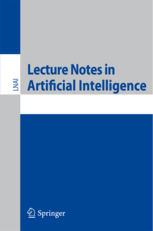
Call for papers
Over the last few decades, graphical models such as Bayesian and Markov networks have become an increasingly popular AI approach. In this workshop we explore methodologies for enhancing the effectiveness of graphical models including modeling, reasoning, model selection, logic-probability relations, and causality. The exploration of methodologies is complemented discussions of practical considerations for applying graphical models in real world settings, covering concerns like scalability, incremental learning, parallelization, and so on. We welcome contributions related to the following topics, but are not limited to:- Probabilistic Reasoning using graphical models
- Combination of Probabilistic Reasoning and Logic in graphical models
- Learning graphical models
- Discovery and Inference of Causality
- Advanced Application of graphical models
- Statistical Physics Approaches to graphical models
new!We have the following special sessions besides usual sessions. When you submit your paper and hope your paper to be included in the sesson, specify it in the easyChair procedure.
Finding an optimal Bayesian network structure from data
(Session Chairs: Brandon Malon & Changhe Yuan)
This session considers learning Bayesian networks (BNs). In the last
decade, several algorithms have been developed which can provably learn
optimal BNs from complete datasets. In the general case, the solvers, based
on techniques like A* search, integer linear programming and SAT, are
currently limited to datasets with around 50 variables. This session
welcomes novel approaches to the problem.
Genome analysis based on Bayesian networks
(Session Chairs: Cassio de Campos & Seiya Imoto)
In the last decade, the advent of microarray and next-generation
sequencing technologies has created the need of statistical and
computational methodologies specifically developed for dealing with
these types of data and novel biomedical research goals. This session
considers constructing a genomic network from data using
the framework of (static or dynamic) Bayesian networks. In general,
such networks have many thousands of variables (genes, SNPs, etc) and
it is not easy to learn their structure. Novel approaches to the
problem are welcome.
Causal Discovery
(Session Chairs: Shohei Shimizu & Aapo Hyvarinen)
Causality is an extremely important topic in many empirical sciences,
including social sciences, natural sciences, and biomedical sciences.
Researchers in these fields need computational methods for analyzing
observed data and estimating causal structures among variables of
interest. Causal discovery in statistics and machine learning has
significantly advanced in the last few decades and has led to many new
approaches. This session welcomes papers related to causal discovery,
including theory, methods, algorithms and applications.
Proceedings
|
new! All accepted papers will be published as post-proceedings in Springer Lecture Note in Artificial Intelligence as well as included in the workshop proceedings.
new! Besides LNAI, selected papers will be considered for publication of a special issue in New Generation Computing Journal of Springer. |

|
Submission procedure
AMBN 2015 requires electronic submission of papers according to the instructions found on the web site of the workshop. The authors must prepare their papers according to the Springer LNCS format, and submit the full version of the papers by the deadline found below. The page limit is 16 pages, including figures and bibliography. The page for author instructions contains format information and provides access to style files and templates.Paper presentation
At least one author of accepted papers is required to register for the workshop. After the workshop, authors of selected papers will be invited to submit an extended version of their paper to appear in a special issue of a journal. The extended papers will undergo a full reviewing process.Important Dates
| Call for papers opened | May 2015 |
| Deadline for paper submissions | |
| September 15, 2015 | |
| Notification of acceptance | October 1, 2015 |
| Final versions due | October 10, 2015 |
| new! Springer LNAI volume number assigned | November 1, 2015 |
| Workshop dates | November 16-18, 2015 |
| new! Springer LNAI published | mid January, 2016 |
